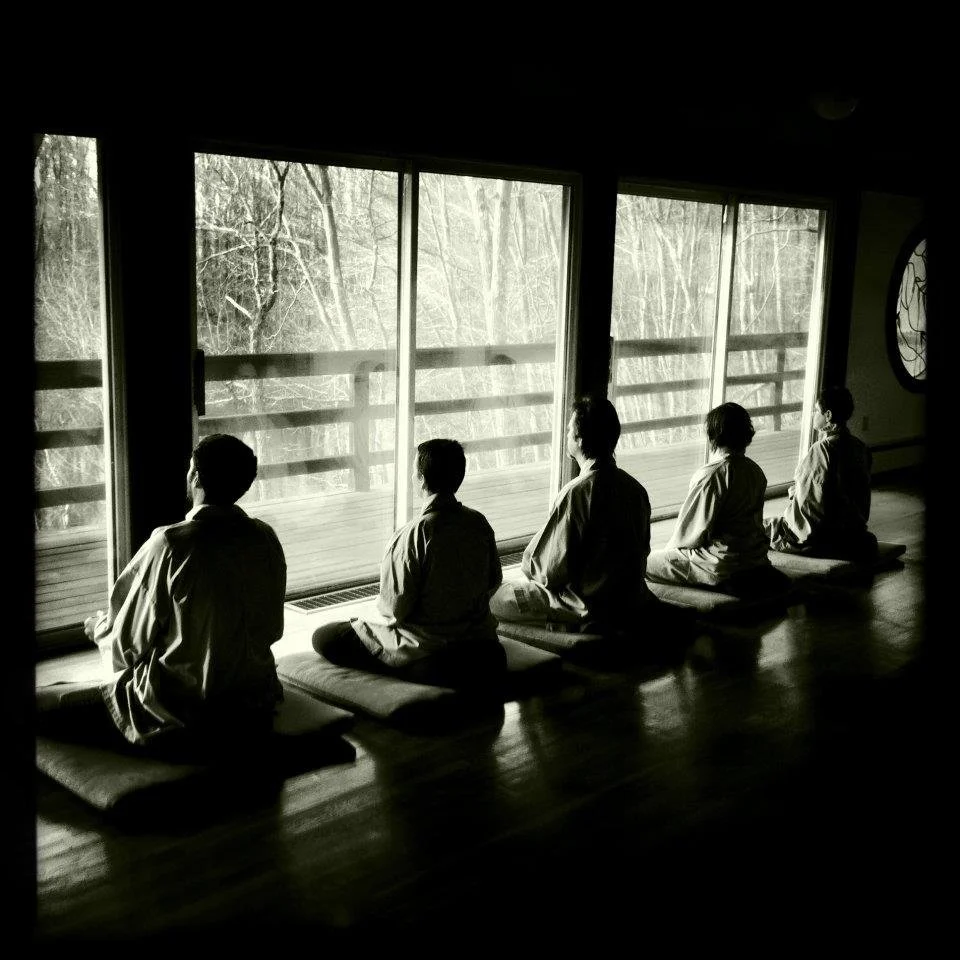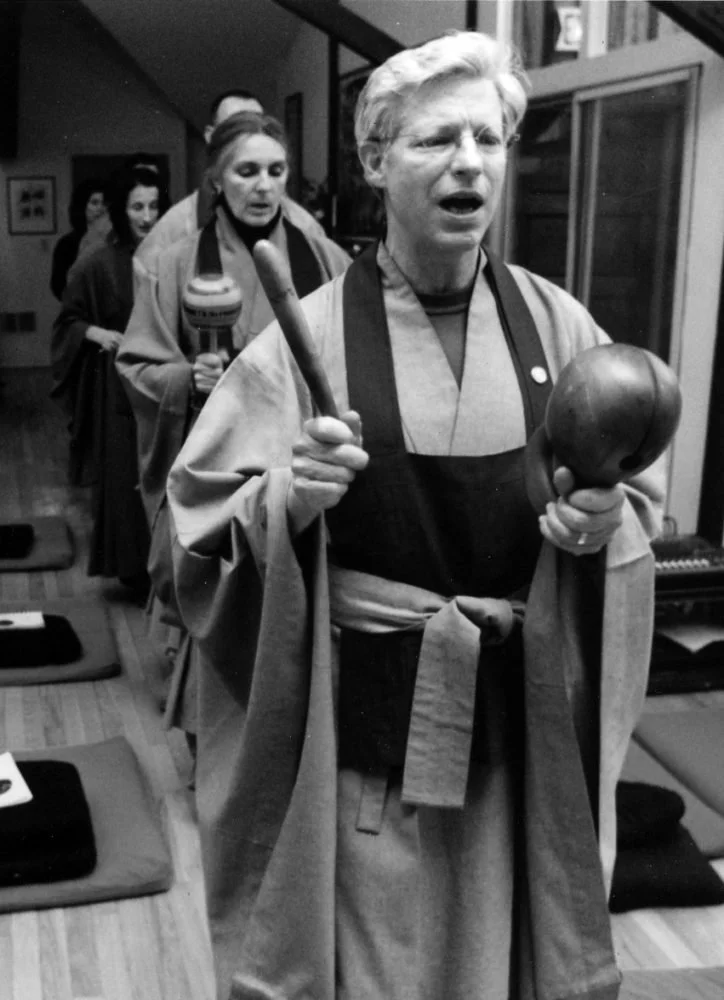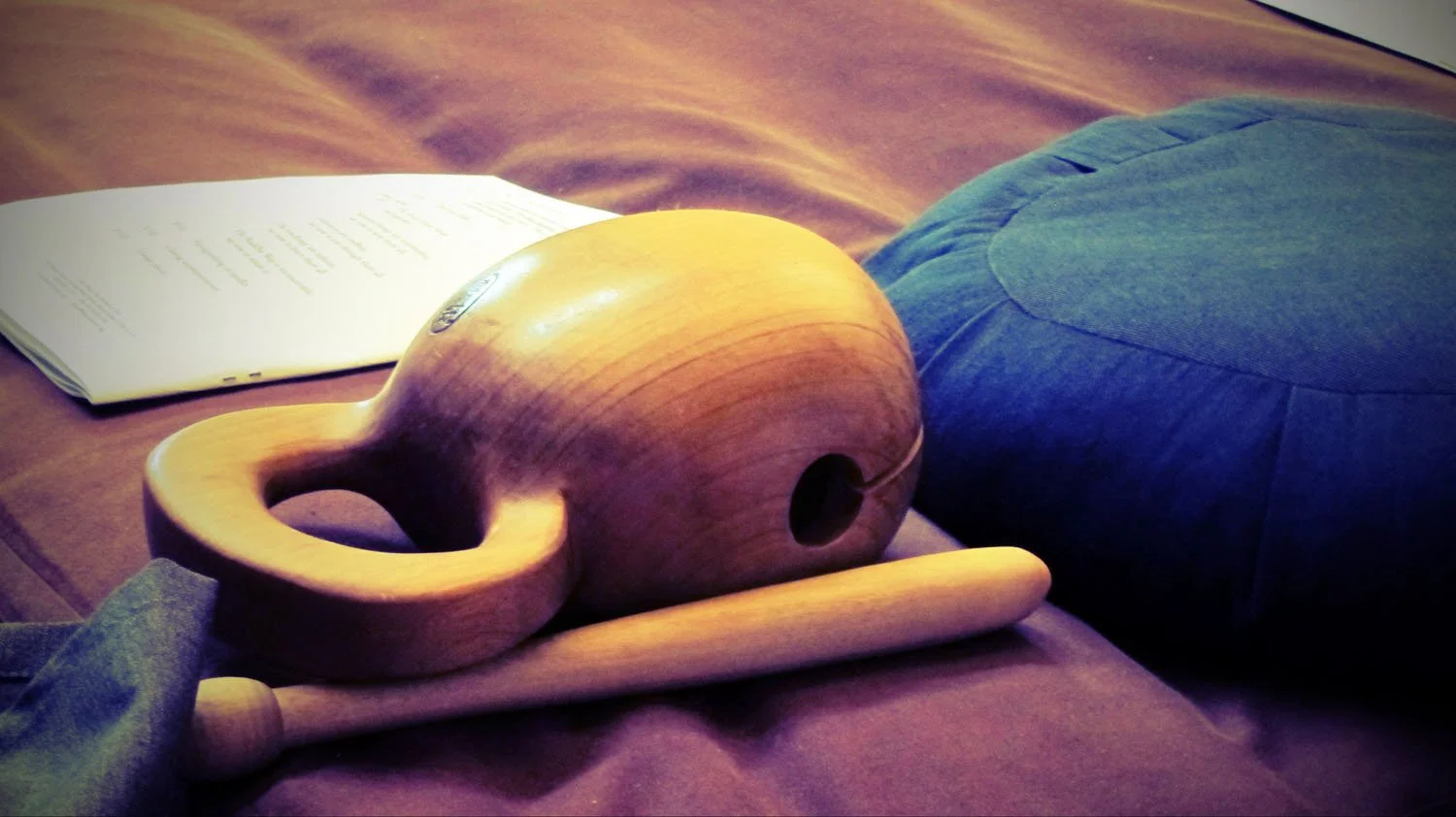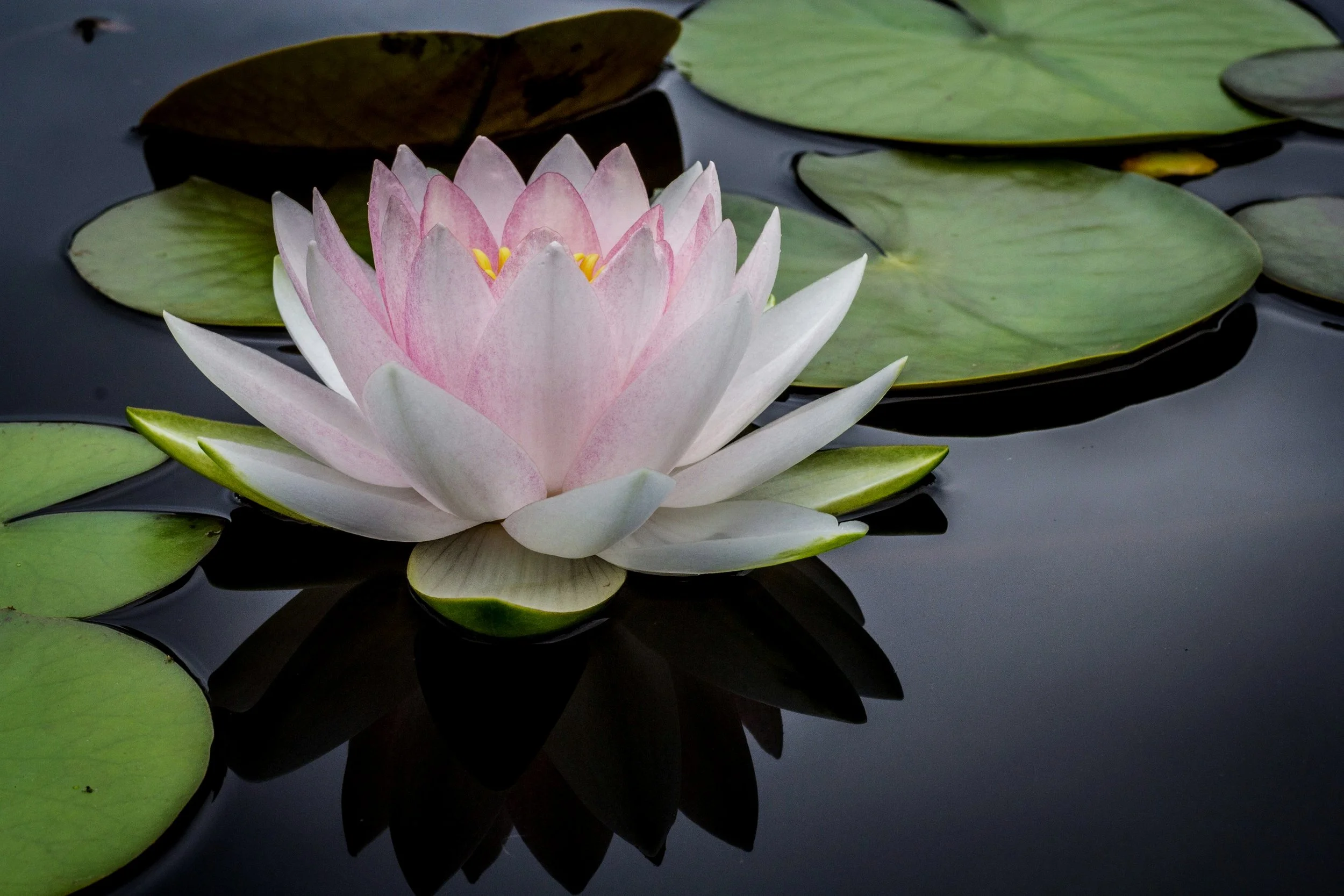
Why We Practice
There is only this.
Dharma Talks
Dharma Talks are a great opportunity to learn more about Zen teaching. They consist of a short introductory talk by a student followed by a question and answer session with a Teacher or senior student. This video is an example of a Dharma Talk, where Zen Master Bon Haeng discusses how and why to begin a meditation practice.
Feel free to check out more videos on the Kwan Um School of Zen’s YouTube.
“Make Practice Our Lives”
“How can I help?” is the foundation of our practice, as Dennis Duermeier JDPSN discusses in this Dharma Talk.
“Sentient beings are numberless; we vow to save them all.”
A Dharma Talk by Zen Master Dae Kwang about the importance of practice.
How We Sit
What is most important in sitting meditation is how we keep our mind just now. We teach different techniques one can use while meditating. You can count your breaths. You can ask yourself the question, such as, “Who am I?” or, “What is this?” on your in-breath. On the out-breath, you may reply to yourself slowly, “Don’t knooowww.” You can also use a mantra or chant.
Clear mind meditation is where you are just aware of what is going on at this moment. This is moment-to-moment mind. Listen to everything that is happening around you. Whenever your mind begins to stray from your meditation technique, be gentle and show yourself compassion. You can come back to the present moment anytime. Learn more at the Kwan Um School of Zen page on sitting.
Why We Chant
One Sunday evening, after a Dharma talk at the International Zen Center of New York, a student asked Seung Sahn Soen-sa, “Why do you chant? Isn’t sitting Zen enough?”
Soen-sa said, “This is a very important matter. We bow together, chant together, eat together, sit together, and do many other things together here at the Zen Center. Why do we practice together?
“Everybody has different karma. So all people have different situations, different conditions, and different opinions. One person is a monk, another is a student, another works in a factory; one person always keeps a clear mind, another is often troubled or dissatisfied; one person likes the women’s movement, another doesn’t. But everybody thinks, ‘My opinion is correct!’ Even Zen Masters are like this. Ten Zen Masters will have ten different ways of teaching, and each Zen Master will think that his way is the best.
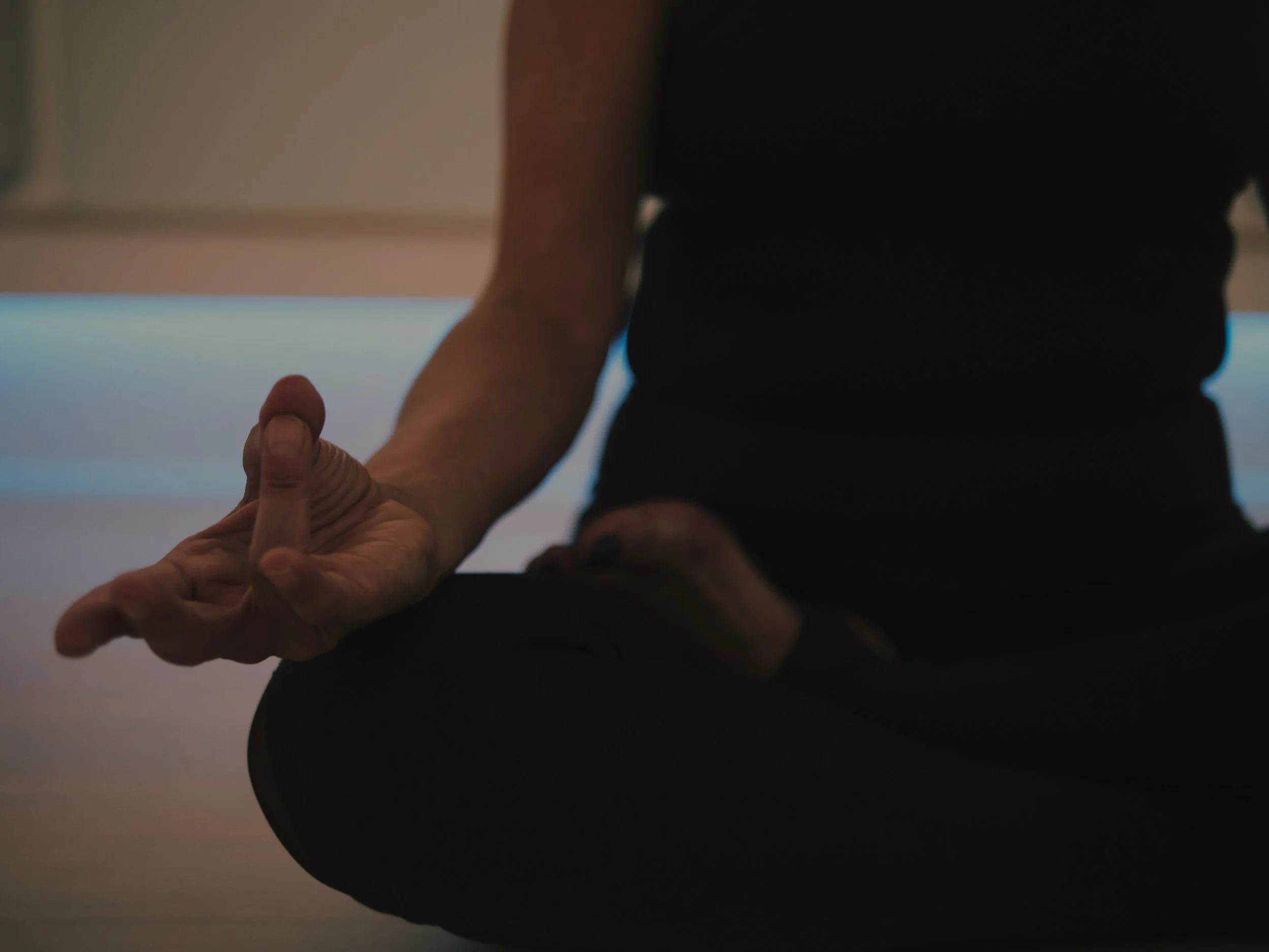
“Different opinions result in different actions, which make different karma. So when you hold on to your own opinions, it is very difficult to control your karma, and your life will remain difficult. Your wrong opinions continue, so your bad karma continues. But at our Zen Centers, we live together and practice together, and all of us abide by the Temple Rules. People come to us with many strong likes and dislikes, and gradually cut them all off. Everybody bows together 108 times at five-thirty in the morning, everybody sits together, everybody eats together, everybody works together. Sometimes you don’t feel like bowing; but this is a temple rule so you bow. Sometimes you don’t want to chant, to sleep; but you chant. Sometimes you are tired and want to but you know that if you don’t come to sitting, people will wonder why; so you sit.
“When we eat, we eat in ritual style, with four bowls; and after we finish eating, we wash out the bowls with tea, using our index finger to clean them. The first few times we ate this way, nobody liked it. One person from the Cambridge Zen Center came to me very upset.
“‘I can’t stand this way of eating! The tea gets full of garbage! I can’t drink it!’ I said to him, ‘Do you know the Heart Sutra?’ ‘Yes.’ ‘Doesn’t it say that things are neither tainted nor pure?’ ‘Yes.’ ‘Then why can’t you drink the tea?’ ‘Because it’s filthy’” (Laughter from the audience.) “‘Why is it filthy? These crumbs are from the food that you already ate. If you think the tea is dirty, it is dirty. If you think it is clean, it is clean.’ He said, ‘You’re right. I will drink the tea.’” (Laughter.)
“So we live together and act together. Acting together means cutting off my opinions, cutting off my condition, cutting off my situation. Then we become empty mind. We return to white paper. Then our true opinion, our true condition, our true situation will appear. When we bow together and chant together and eat together, our minds become one mind.
“It is like on the sea. When the wind comes, there are many waves. When the wind dies down, the waves become smaller. When the wind stops, the water becomes a mirror, in which everything is reflected – mountains, trees, clouds. Our mind is the same. When we have many desires and many opinions, there are many big waves. But after we sit Zen and act together for some time, our opinions and desires disappear. The waves become smaller and smaller. Then our mind is like a clear mirror, and everything we see or hear or smell or taste or touch or think is the truth. Then it is very easy to understand other people’s minds. Their minds are reflected in my mind.
“So chanting is very important. At first you won’t understand. But after you chant regularly, you will understand. ‘Ah, chanting – very good feeling!’ It is the same with bowing 108 times. At first people don’t like this. Why do we bow? We are not bowing to Buddha, we are bowing to ourselves. Small I is bowing to Big I. Then Small I disappears and becomes Big I.
This is true bowing. So come practice with us. You will soon understand.”
The student bowed and said, “Thank you very much.”
— Zen Master Seung Sahn, excerpted from Dropping Ashes on the Buddha
How We Chant
During most of our morning and evening practices, we do chanting meditation before the sitting period. The purpose of this kind of meditation, as with sitting meditation, is to be aware of this moment, of yourself, of the people around you. We provide chanting books where we have syllables spelled out for you in English in order to know how to say the chant.
Zen Master Seung Sahn once said, “At first you won’t understand. But after you chant regularly, you will understand. ‘Ah, chanting-very good feeling!’” The key to chanting correctly is to chant with 100 percent focus and energy: just loud enough to hear your own voice, and softly enough to hear everyone else in the room. Learn more at the Kwan Um School of Zen page on chanting.
Why We Bow
By Zen Master Dae Bong, from the Kwan Um School of Zen’s page on Meditation
Bowing practice means that your body and your mind become one very quickly. Also, it is a very good way to take away lazy mind, desire mind and angry mind.
When you’re sleeping, your body’s laying in your bed, but your mind flies around and goes somewhere. Maybe you go to Las Vegas or you go to the ocean or you go to New York, or some monster is chasing you. Your body’s in bed, but your consciousness already went somewhere. When we wake up, many times, our consciousness and our body don’t quickly connect. So you wander around your house, and drink coffee, you bump into things.
Then slowly, slowly your consciousness and your body again come together. So that’s why, first thing in the morning, we do one hundred and eight bows. Through these one hundred and eight bows, your body and your consciousness become one very quickly. In this way, being clear and functioning clearly is possible.
We always bow one hundred and eight times. One hundred and eight is a number from Hinduism and Buddhism. That means there are one hundred and eight defilements in the mind. Or, sometimes they say one hundred and eight compartments in the mind. Each bow takes away one defilement, cleans one compartment in your mind. So our bowing practice is like a repentance ceremony every morning. In the daytime, in our sleep, our consciousness flies around somewhere. Also, we make something, we make many things in our consciousness. Then, we repent! So we do one hundred and eight bows; that’s already repenting our foolish thinking, taking away our foolish thinking.
Some people cannot sit. Sometimes due to health limitations or they have too much thinking, and if they sit, they cannot control their consciousness. Then, bowing is very good. Using your body in this way is very important.
The direction of bowing is very important. I want to put down my small I, see my true nature and help all beings. So, any kind of exercise can help your body and mind become one, but with just exercise, the direction is often not clear. Sometimes it’s for my health, sometimes it’s for my good looks, sometimes it’s to win a competition, but in Buddhism, everything’s direction is the same point – how to perceive my true nature and save all beings from suffering.
Our bowing takes away our karma mind, our thinking mind, and return to this moment very clearly, want to find my true nature and save all beings from suffering. This is why bowing practice is so important. If somebody has much anger, or much desire, or lazy mind, then every day, 300 bows, or 500 bows, even 1,000 bows, every day. Then their center will become very strong, they can control their karma, take away their karma, and become clear. This helps the practitioner and this world.
How We Bow
The Kwan Um School of Zen’s resource on bowing forms can be helpful for understanding how to bow.
We Welcome You to Practice With Us
In-Person Location:
Unitarian Universalist Church
12 Ford Avenue
Oneonta, NY 13820
Practice Schedule
Monday/Wednesday/Friday Morning Zoom Practice: 6:00am - 7:00am
Monday Evening In-Person & Zoom Practice: 6:30pm - 8:00pm at Unitarian Universalist Church, 12 Ford Avenue, Oneonta, NY 13820
Thursday Evening In-Person & Zoom Practice with Dharma Talks: 6:30pm - 8:00pm at the First Congregation Church of Binghamton 30 Main Street Binghamton, NY, 13905
Phone
(607) 988-7966
